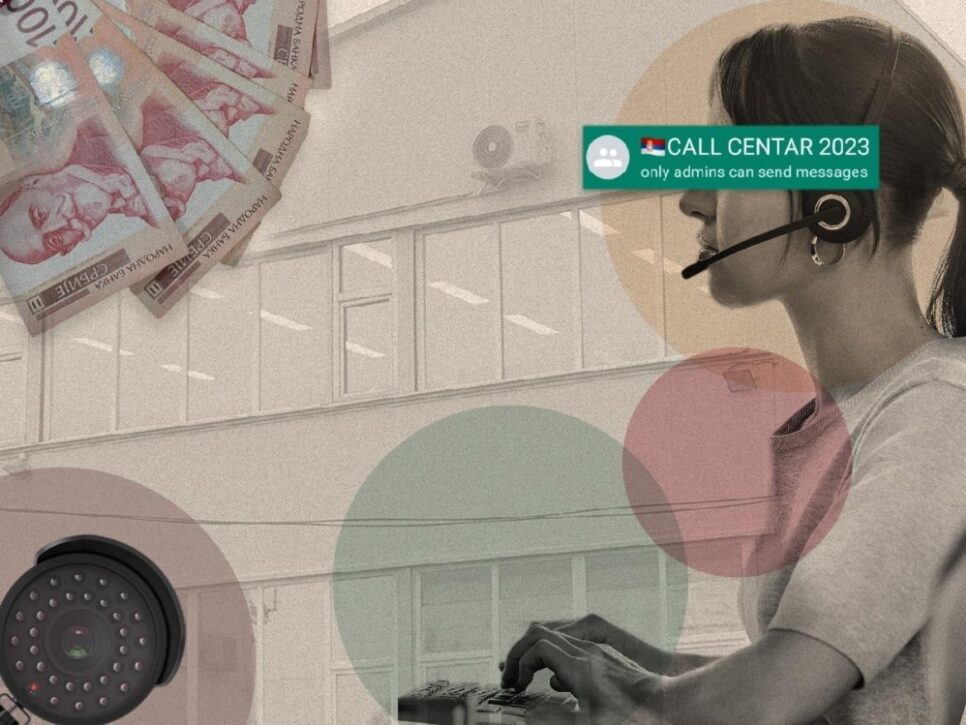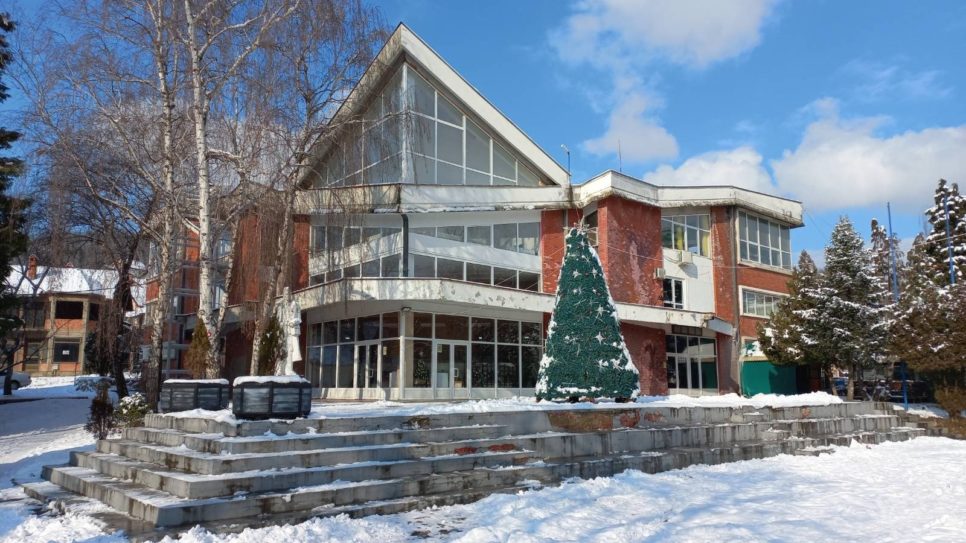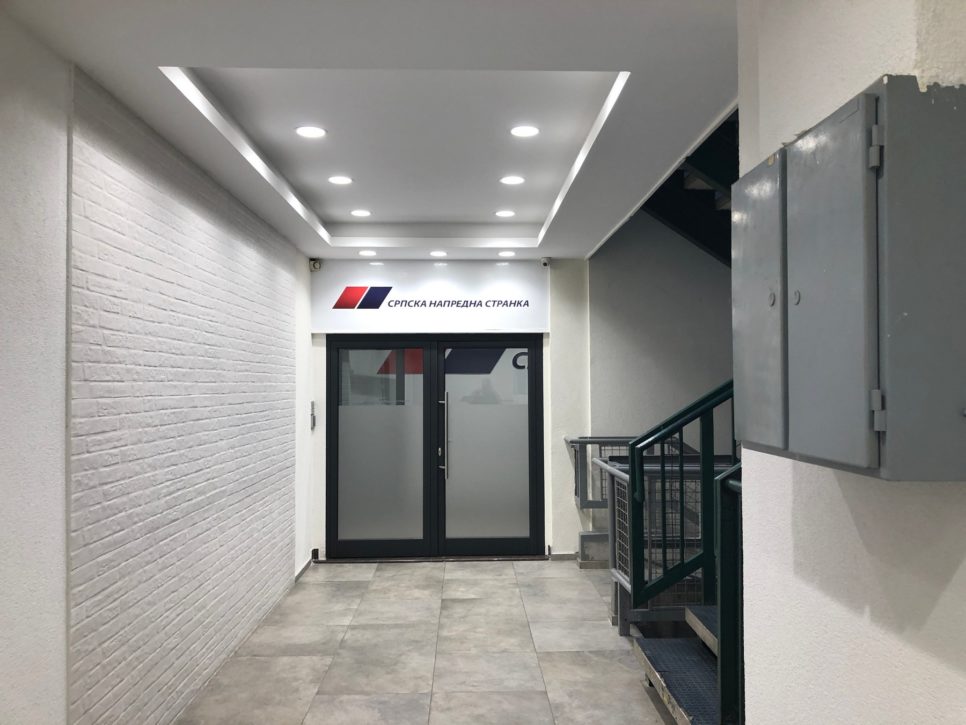In Požeženo, 10 minutes away from the eastern Serbian municipality of Veliko Gradište, more than 140 hectares of state-owned land stays unused.
In March 2019, CINS journalists found tree stumps and old car tires on site. Nothing indicated that this was the place where an investment of more than three million euros – the first biomass power plant in this part of Serbia – was supposed to materialize.
A biomass power plant generates energy from biomass – waste from agriculture, forestry or communal waste – an underused source of energy in Serbia, which has a lot of potential.
Even though it was supposed to be a new workplace for dozens of inhabitants of this small municipality, the investment fell through.
In a tender for leasing state-owned land, held in September 2016, the sole bidder was the Belgrade-based company D&D Energy, which was given the land to produce electricity and heat from Jerusalem artichoke, a plant similar to the potato. D&D Energy got the land at the asking price of 18.65 euros per hectare per year.
“The tender for this land was called for a specific purpose. An agreement was reached at the end of September, after several months of negotiations,” the head of the municipality of Veliko Gradište, Dragan Milić, said in an interview, without revealing the investor’s name at the time.
The Center for Investigative Journalism of Serbia (CINS) learned that one of the owners of this company is Dejan Drecun, son of Milovan Drecun, an official of the Serbian Progressive Party and chairman of the parliamentary Committee on Kosovo and Metohija.
What is less known is that D&D Energy did not exist yet on September 1, when the competition was called.
Six days was apparently enough time to found a company, gather the required documentation and apply for the tender on the last day of the application period. Dragan Lakićević, co-owner and director of D&D Energy, in December 2016 signed a 30-year contract with the then Ministry of Agriculture and Environmental Protection, authorized to lease state-owned land.
Ministry Did Not React to Contract Violation
Biomass power plants can be a less harmful renewable source of energy than mini hydro power plants, because the energy is produced from waste or plants sown for that sole purpose, i.e. from sources that can also be stored. The project in Veliko Gradište was to encompass land equaling almost 10 football stadiums.
Although the start of construction works had been announced in 2017, research conducted by CINS shows that this did not happen, as Dejan Drecun and his partner Dragan Lakićević failed to abide by the contract from the beginning.
Despite having a 60-day period to request permission for investment from the Ministry of Agriculture and then start building the facility, D&D Energy never applied for said permission.
According to the contract provisions, failure to obtain permission meant the contract would be terminated. However, that did not happen.
For the biomass power plant to generate energy, the company was also supposed to obtain an energy permit, for which it had a period of two years.
Drecun and Lakićević with their company D&D Energy did not apply for a permit with the Ministry of Mining and Energy either.
“I could not apply because I didn’t know whether I would get the results that provided me with justification for something like that,” Lakićević told CINS. They thought, as he puts it, that the biomass undertaking would pay off, but the study they ordered after signing the lease deal showed that only about two to three times less Jerusalem artichoke than planned could be grown on that surface area.
“You know, I’ve been in the business for many years and I really don’t want to create failures,” he added.
Zvezdan Kalmar of the Center for Ecology and Sustainable Development (CEKOR) says that it is senseless to leave 140 hectares of state-owned land unused:
“In my opinion, the investors should have taken several hectares of land five years prior and planted Jerusalem artichokes, or whatever else they wanted, to assess their calorific value. That is how gradual research is done.”
According to CINS’ findings, the company respected part of the contract related to payment of the land lease fee – which brought the state 2,600 euros annually. Nearly two months after the end of the two-year period, and not long after CINS journalists requested access to the contract the Ministry of Agriculture had signed with D&D Energy – the contract was terminated.
The Ministry terminated the contract in January 2019, precisely due to the absence of an energy permit.
Lakićević, who was to play the role of project financier, says that “it is better for me to be guilty, for someone to terminate a contract or punish me” than for a job not to pay off.
“Look, the investment was about four to five million euros and I didn’t want to invest in that without having my own raw material, you understand what I’m saying?” said Lakićević.
What the state has left of the multimillion investment is several thousand euros.
When asked why they did not check the company while the contract was still valid, Ministry officials say they were not aware of any illegality related to this land. What’s more, in their reply to CINS they say the state earned money through the fee and conclude that the property of the Republic of Serbia has suffered no damage.
Dejan Drecun did not respond to CINS’ questions.
Another Chance for an Investment
The Veliko Gradište municipal administration invited on July 12, 2019 potential investors to apply for the land again, this time for agricultural production. In an interview with the CINS journalist, Milić was not sure which of the two investors had called him on the telephone, but he confirmed that they were again interested in investing.
When asked whether it is acceptable for them to apply again, Milić said that what mattered to him was for taxes to be paid and people to be employed.
“I can only hope that they will build that biomass power plant because, according to that first letter of intent, it seems that they wanted to employ some 20 people, which is my goal.”
That, however, is not possible. According to the municipal tender, for the land to be used for biomass again, it must not be leased for three years prior to that.
This is not the first company Drecun has owned, nor is it his first endeavor in the renewable energy sector. Until May 2016 he was the co-owner of the Obnovljiva Energija Plus (Renewable Energy Plus) company, based in Pirot. Not long after he left it, the company’s account was frozen – and still is – over a debt of close to a million dinars (7,700 euros).
A few months later, Drecun founded D&D Energy with Lakićević, formerly the director of the Mačkatica company, based in southern Serbia town of Surdulica.






What do you think